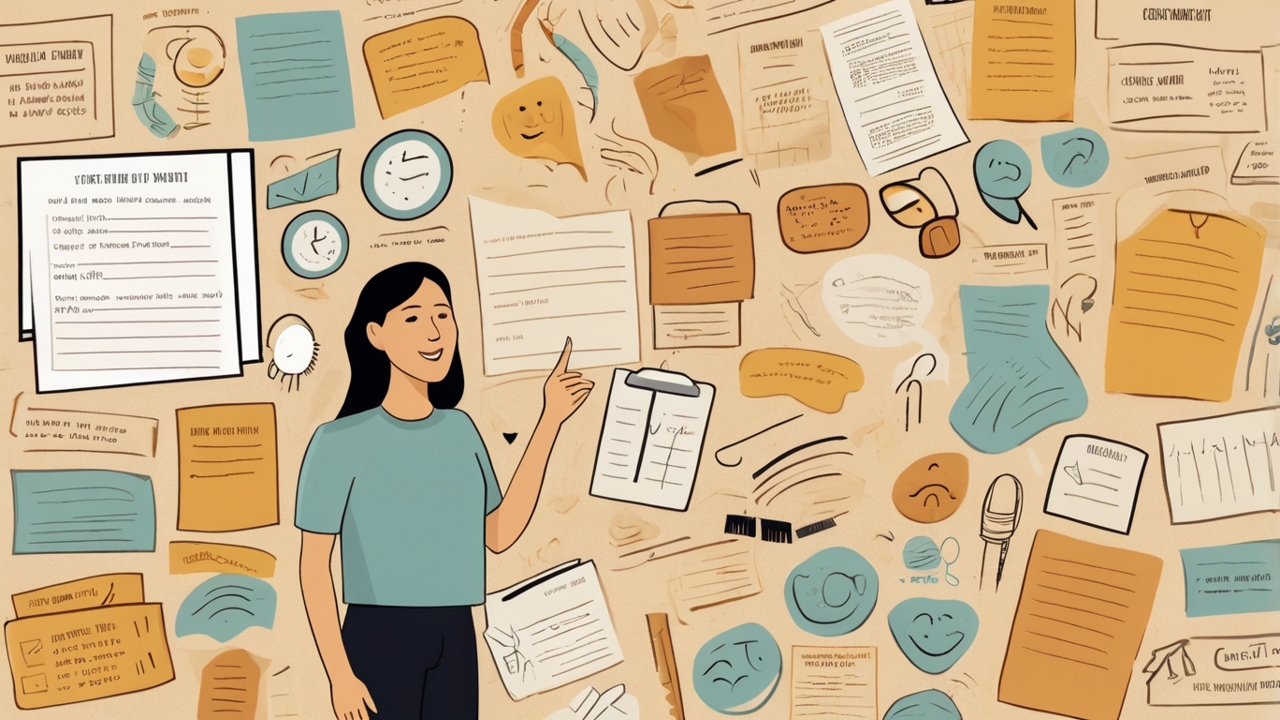Round Rock Journal – In a world that constantly demands more more productivity, more performance, more presence we rarely pause to ask the simplest question: “How am I, really?” That’s where the concept of an Emotional Inventory comes in. It’s a simple yet profound practice of checking in with your emotions, much like reviewing your finances or health.
Taking 15 minutes each month to do this kind of self-audit can drastically improve your mental clarity, resilience, and overall well-being. As someone who practices this regularly, I’ve found that these short emotional check-ins act as a compass, guiding me through burnout, uncertainty, and even creative blocks.
“Read also: The Hidden Impact of Organic Food on Your Wellbeing“
What Exactly Is an Emotional Inventory?
An Emotional Inventory is a structured reflection process designed to evaluate your emotional state, reactions, and needs. It’s not about overanalyzing or judging your feelings it’s about acknowledging them honestly. Just as businesses track progress through monthly reports, you can track your emotional trends over time to see patterns, triggers, and growth.
Imagine it as taking a snapshot of your inner world. You might discover that stress at work has been slowly eroding your patience, or that gratitude has been quietly keeping you grounded. Awareness is always the first step toward change.
Why Monthly Self Audits Matter More Than Ever
Modern life runs at a relentless pace, and emotional fatigue often sneaks up unnoticed. Regular self audits serve as preventative care for your mental health. By identifying emotional strain early, you can make adjustments before stress turns into burnout or disconnection.
Psychologists emphasize that emotional self-awareness correlates directly with resilience and empathy. In my own experience, dedicating just 15 minutes each month can create ripple effects better decision-making, improved communication, and a greater sense of balance.
The 15-Minute Emotional Inventory Framework
Taking an Emotional Inventory doesn’t need to be complicated. All you need is a quiet space, a notebook, and a willingness to be honest. Here’s a simple structure I use:
- Identify your top emotions: Write down what you’ve felt most frequently this month joy, anxiety, frustration, calmness, etc.
- Ask why: Explore what triggered those emotions. Was it work pressure, relationships, or self-expectations?
- Assess your energy levels: How drained or recharged did you feel most days?
- Reflect on your needs: What’s missing? Rest? Connection? Creativity?
- Set an emotional goal: Decide what feeling you’d like to cultivate next month maybe peace instead of stress, or curiosity instead of fear.
The key is consistency, not perfection. Even imperfect reflections help you see emotional patterns that might otherwise go unnoticed.
Turning Reflection Into Growth
Once you’ve completed your inventory, the next step is to turn awareness into action. For example, if you realize your main emotion has been exhaustion, maybe it’s time to reprioritize rest or reduce unnecessary commitments.
Personally, I’ve found that documenting emotions month-to-month creates a clear emotional timeline. Looking back, you can actually see how far you’ve come how certain worries faded, or how new sources of joy emerged. That sense of progress can be deeply motivating, especially during tough months when growth feels invisible.
Emotional Honesty: The Cornerstone of Mental Clarity
Many people avoid emotional reflection because they fear discomfort. Yet, emotional honesty isn’t about weakness it’s about strength through understanding. When you allow yourself to feel fully and acknowledge what’s real, you reduce internal conflict.
From a psychological perspective, suppression of emotion often leads to anxiety or fatigue. In contrast, acknowledging your emotions activates self-regulation, helping your brain process and release them effectively. I believe that emotional honesty is one of the purest forms of self-respect.
Tools and Prompts to Deepen Your Emotional Inventory
If you’re not sure where to begin, prompts can help unlock your emotional insight. Try starting with these:
- What emotion have I felt the most this month?
- What event or habit triggered that emotion?
- When did I feel most alive or aligned?
- What situation drained me the most?
- What do I need more or less of next month?
Digital tools like journaling apps or even voice notes can make this process more accessible. What matters most is intention to check in, listen, and respond with compassion.
“Read also: Big Change: NCAA Lets College Athletes Bet on Professional Sports Starting November 1“
How Emotional Audits Strengthen Relationships
Interestingly, doing regular Emotional Inventories can also enhance your relationships. When you’re more in tune with your emotions, you communicate more clearly and empathetically. You begin to recognize patterns perhaps irritability stems from overwork, not from your partner’s behavior.
I’ve noticed that when I’m emotionally grounded, I respond rather than react. Conversations become more constructive, and conflicts feel less like battles and more like opportunities for understanding.
Making Emotional Inventory a Monthly Habit
Building this practice into your routine is simpler than it sounds. Schedule it like a meeting with yourself the last Sunday of every month, for instance. Pair it with a comforting ritual: a cup of tea, soft music, or even a walk. The idea is to make it something you look forward to, not a chore.
Over time, this 15-minute ritual becomes a grounding anchor a quiet pause that reminds you of who you are and what truly matters, even amid chaos.
The Power of Emotional Awareness
In a society that measures success in speed and output, taking time for emotional reflection can feel radical. Yet, an Emotional Inventory offers one of the simplest yet most profound forms of self-care. In just 15 minutes, you can recalibrate your emotional compass, renew your focus, and restore your sense of balance.
These monthly self audits have become less about fixing myself and more about meeting myself with honesty, patience, and kindness. And perhaps that’s the true essence of growth: learning to listen deeply to the stories our emotions are trying to tell.


